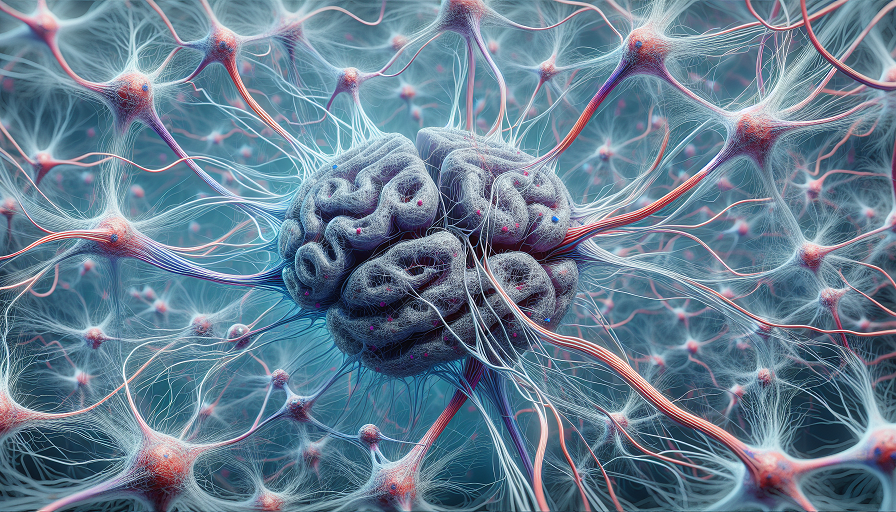
Gratitude is more than just a feel-good emotion; it’s a transformative practice that can rewire your brain for positivity, resilience, and improved mental health. Through neuroplasticity—the brain’s ability to reorganize itself by forming new neural connections—practicing gratitude can create lasting changes in how we perceive the world, respond to challenges, and nurture relationships.
Contents
The Science Behind Gratitude and Neuroplasticity
Neuroplasticity allows the brain to adapt and evolve based on experiences and behaviors. When we focus on feelings of gratitude, we activate specific neural pathways associated with reward, social bonding, and emotional regulation. Over time, consistent gratitude practice strengthens these pathways, making positivity and appreciation a natural part of our thinking patterns.
Gratitude triggers the release of neurotransmitters like dopamine and serotonin—key players in mood regulation and overall happiness. These chemicals not only make us feel good in the moment but also reinforce neural circuits that support optimism and well-being. Additionally, gratitude engages the prefrontal cortex, the brain’s decision-making and reasoning center, helping us focus on what truly matters.
Benefits of Gratitude for Brain Health
The mental and emotional benefits of gratitude are vast, supported by research and anecdotal evidence alike. Here’s how gratitude rewires your brain and impacts your overall well-being:
Enhances Emotional Resilience
Gratitude shifts your focus from what’s lacking to what’s abundant, fostering a sense of contentment and reducing stress. This emotional resilience helps you bounce back from challenges with greater ease.
Reduces Stress and Anxiety
By promoting relaxation and reducing cortisol levels, gratitude counteracts the physiological effects of stress. It also calms the amygdala, the brain’s fear center, improving emotional regulation.
Improves Relationships
Expressing gratitude strengthens social bonds and fosters trust. It encourages positive interactions, making both personal and professional relationships more fulfilling.
Boosts Cognitive Function
Gratitude enhances focus, memory, and problem-solving abilities by redirecting mental energy toward constructive thoughts. It also fosters a growth mindset, encouraging adaptability and learning.
Enhances Sleep Quality
Studies show that gratitude practices can improve sleep by reducing intrusive thoughts and promoting a sense of calm before bedtime. Better sleep, in turn, supports cognitive and emotional health.
How Gratitude Practices Rewire the Brain
The changes gratitude brings to the brain are both structural and functional. Here’s how the practice works its magic:
Strengthening Neural Pathways
Repeatedly focusing on gratitude activates the brain’s reward system, reinforcing pathways associated with joy and contentment. This rewiring makes it easier to experience positive emotions in everyday life.
Enhancing Neurotransmitter Activity
Gratitude increases the release of dopamine and serotonin, boosting mood and reducing symptoms of depression and anxiety. These chemical changes create a positive feedback loop, making gratitude more instinctive over time.
Encouraging Functional Connectivity
Gratitude strengthens connections between the prefrontal cortex and other brain regions, enhancing emotional regulation, empathy, and decision-making. This integration supports a balanced and adaptable mindset.
Practical Gratitude Practices
Incorporating gratitude into your life doesn’t require a major time commitment. Small, consistent efforts can yield significant benefits. Here are practical ways to start rewiring your brain with gratitude:
Keep a Gratitude Journal
Spend a few minutes each day writing down three things you’re thankful for. This practice trains your brain to notice and appreciate the positives in your life. Over time, you’ll find yourself naturally seeking out reasons to feel grateful.
Express Appreciation to Others
Take time to thank people who’ve made a difference in your life, whether through a heartfelt note, a kind word, or a thoughtful gesture. Expressing gratitude strengthens relationships and reinforces positive social interactions.
Practice Mindful Gratitude
During moments of quiet reflection or meditation, focus on the things you’re grateful for. Visualize them vividly and allow yourself to fully experience the emotions they evoke. This mindfulness amplifies the neurological benefits of gratitude.
Use Gratitude Prompts
If you’re struggling to find things to be grateful for, use prompts such as: “What made me smile today?” or “Who is someone I’m thankful to have in my life?” These questions help shift your perspective toward positivity.
Celebrate Small Wins
Gratitude isn’t reserved for big milestones. Acknowledge and appreciate small victories, like completing a task or enjoying a good meal. These moments of gratitude compound over time, rewiring your brain for positivity.
Overcoming Obstacles to Gratitude
Building a gratitude habit can be challenging, especially during difficult times. Here’s how to overcome common obstacles:
Address Negativity Bias
Our brains are wired to focus on threats and problems. Combat this tendency by deliberately redirecting your attention to what’s going well. Over time, gratitude can counterbalance negativity bias.
Be Patient
Rewiring your brain takes time and consistency. Don’t be discouraged if you don’t feel an immediate shift. Stick with your gratitude practice, and the benefits will become more apparent over time.
Seek Support
Share your gratitude journey with friends, family, or a community. Encouragement and shared experiences can make the practice more enjoyable and sustainable.
Real-Life Applications of Gratitude
Gratitude isn’t confined to personal reflection—it can transform various aspects of your life:
At Work
Expressing gratitude to colleagues fosters collaboration, boosts morale, and enhances workplace relationships. Leaders who cultivate a culture of gratitude create more engaged and productive teams.
In Relationships
Regularly acknowledging and appreciating your loved ones strengthens emotional bonds and promotes mutual understanding.
For Mental Health
Gratitude practices reduce symptoms of depression and anxiety, promoting a sense of peace and emotional balance. They serve as a powerful tool for managing stress and building resilience.
Gratitude is a simple yet profound practice with the power to rewire your brain and transform your life. By consistently focusing on the positives, you can enhance neuroplasticity, improve emotional well-being, and strengthen your relationships. Whether you start with a gratitude journal, mindful reflection, or small acts of appreciation, the key is to make gratitude a regular part of your life. With time and practice, you’ll find that gratitude not only changes your brain but also opens the door to a richer, more fulfilling experience of the world.

